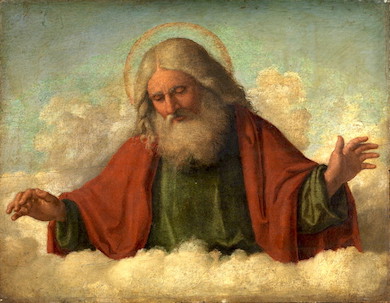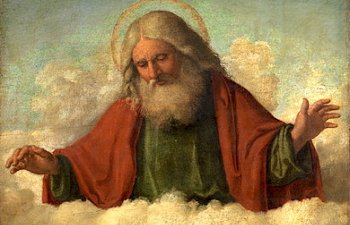(Click here to read Part 1)
Overreach?
Keller says the Elder Brother was trying to use his obedience to the father to control him. He says:
One reason I included the full text of the “Prodigal Son” parable in Part 1 is so you could reference it. Feel free to scan it again and see if you find any justification for what Keller is saying here. I couldn’t.
If the Elder Brother “wanted the father’s goods rather than the father himself”, why did he stay? Why didn’t he take the inheritance and run like the younger brother?
Keller asserts the Elder Brother tried to “control” the father to reject the Younger Brother by avoiding the feast. Keller says the Elder Brother did everything to hurt his father. But in my view, he did the least. To sulk on one’s own because of the hurt that comes with feelings of confusion and unfairness, to me, seems almost a model of self-restraint. The Elder Brother needs a moment to try to understand the father’s seemingly arbitrary rewards system, after all.
I humbly suggest Keller was reading too much into the parable. At the same time, I understand Keller is trying to show what Jesus might have actually meant in teaching the Pharisees how they were trying to control God through their obedience, to the point they sought to dictate who God might save and who He wouldn’t.
Sometimes we have to infer what’s not said. Jesus intentionally spoke in riddles to the public, leaving the the true meaning only to those with the will to follow Him and pursue the truth. In Mark 4:33-34, it is said of Jesus, “He did not say anything to them without using a parable. But when he was alone with his own disciples, he explained everything.” The 12 Apostles received the full explanation; the rest of us must be truth-seekers like Keller in searching for meaning when the parables give us only general outlines.
God’s Sovereignty & Jesus Being the “Elder Brother” we Never Had

The book made powerful points about God’s sovereignty. If the father in the parable is God, it’s God’s choice who to give salvation to, and it doesn't merely have to be to the “best behaved”. In that sense, God is “prodigal” in his Grace, his love for mankind, and his willingness to forgive and accept, just like the father in the parable who hugged his wayward son before the latter could even say a word of apology.
Keller was eloquent in explaining we are all Younger Brothers. As descendants of Adam and inheritors of ‘original sin’, we are all trying to find our way ‘home’ to the Garden of Eden, our original birthplace, “the true country we were made for”. As Christians, we are ‘aliens’ in this world, with our true residence being in union with God. Keller states, “The message of the Bible is that the human race is a band of exiles trying to come home”. All of us believers are Younger Brothers.
Our right-of-return is only possible because of one man- Jesus Christ. Prior, the Elder Brothers of the world (ie: the Pharisees) insisted we could not return because we were not the right bloodline or because as sinners, we had no place in God’s home.
Career sinners such as prostitutes and tax collectors were drawn to Jesus because he talked about a God so prodigal in his forgiveness, that even those who had been ridiculed for being so deeply flawed they ought to abandon all hope of salvation, finally saw a glimmer of hope-- an opportunity to return. Jesus is the “Elder Brother” we are grateful to have. Jesus modeled God’s law without flaw (far more wisely than the Pharisees), but he did not revel in his perfection and self-aggrandize at the sinner’s expense. Instead, he knew he had “not come to call the righteous but sinners to repentance” (Luke 5:32)
Conclusion
At first I was stunned that Keller would lay the problems of the world in Jesus’ time at the Elder Brother’s feet (and also the judgmentalism and intolerance of the modern church), all for sulking about not getting a “young goat” to eat while his brother got a “fattened calf”. Later, I accepted that Keller was magnifying the Elder Brother’s character flaws intentionally, so we could see the fullness of Jesus’ assessment of the Pharisees - and ultimately the message the Pharisees would have heard from Jesus as he warned them of their fate unless they changed their ways. Else, they would meet the same fate as the Elder Brother in the parable: bewildered and on the outside-looking-in - all the more unfortunate for them, because that will leave them out of an even grander feast -- the feast that God will throw at the end of history, as the prophet Isiah predicted (Isaiah 25:6).
It takes Keller 149 pages to unpack the meaning of a parable which itself contained less than 500 words! Over those pages, he weaves in cultural context and takes us through both Old and New testaments to explain what the “Prodigal Son” tells us about God’s sovereignty, serving God without expecting exclusive access, and the reckless grace of God in accepting mankind despite our sin. With this much revealed, I’m humbled and inspired to find what else in the Bible I read and thought I understood, but barely scratched the surface.
To read more by Bob Chandra, author of The Narrow Gate blog, click here.
Overreach?
Keller says the Elder Brother was trying to use his obedience to the father to control him. He says:
One reason I included the full text of the “Prodigal Son” parable in Part 1 is so you could reference it. Feel free to scan it again and see if you find any justification for what Keller is saying here. I couldn’t.
If the Elder Brother “wanted the father’s goods rather than the father himself”, why did he stay? Why didn’t he take the inheritance and run like the younger brother?
Keller asserts the Elder Brother tried to “control” the father to reject the Younger Brother by avoiding the feast. Keller says the Elder Brother did everything to hurt his father. But in my view, he did the least. To sulk on one’s own because of the hurt that comes with feelings of confusion and unfairness, to me, seems almost a model of self-restraint. The Elder Brother needs a moment to try to understand the father’s seemingly arbitrary rewards system, after all.
I humbly suggest Keller was reading too much into the parable. At the same time, I understand Keller is trying to show what Jesus might have actually meant in teaching the Pharisees how they were trying to control God through their obedience, to the point they sought to dictate who God might save and who He wouldn’t.
Sometimes we have to infer what’s not said. Jesus intentionally spoke in riddles to the public, leaving the the true meaning only to those with the will to follow Him and pursue the truth. In Mark 4:33-34, it is said of Jesus, “He did not say anything to them without using a parable. But when he was alone with his own disciples, he explained everything.” The 12 Apostles received the full explanation; the rest of us must be truth-seekers like Keller in searching for meaning when the parables give us only general outlines.
God’s Sovereignty & Jesus Being the “Elder Brother” we Never Had

The book made powerful points about God’s sovereignty. If the father in the parable is God, it’s God’s choice who to give salvation to, and it doesn't merely have to be to the “best behaved”. In that sense, God is “prodigal” in his Grace, his love for mankind, and his willingness to forgive and accept, just like the father in the parable who hugged his wayward son before the latter could even say a word of apology.
Keller was eloquent in explaining we are all Younger Brothers. As descendants of Adam and inheritors of ‘original sin’, we are all trying to find our way ‘home’ to the Garden of Eden, our original birthplace, “the true country we were made for”. As Christians, we are ‘aliens’ in this world, with our true residence being in union with God. Keller states, “The message of the Bible is that the human race is a band of exiles trying to come home”. All of us believers are Younger Brothers.
Our right-of-return is only possible because of one man- Jesus Christ. Prior, the Elder Brothers of the world (ie: the Pharisees) insisted we could not return because we were not the right bloodline or because as sinners, we had no place in God’s home.
Career sinners such as prostitutes and tax collectors were drawn to Jesus because he talked about a God so prodigal in his forgiveness, that even those who had been ridiculed for being so deeply flawed they ought to abandon all hope of salvation, finally saw a glimmer of hope-- an opportunity to return. Jesus is the “Elder Brother” we are grateful to have. Jesus modeled God’s law without flaw (far more wisely than the Pharisees), but he did not revel in his perfection and self-aggrandize at the sinner’s expense. Instead, he knew he had “not come to call the righteous but sinners to repentance” (Luke 5:32)
Conclusion
At first I was stunned that Keller would lay the problems of the world in Jesus’ time at the Elder Brother’s feet (and also the judgmentalism and intolerance of the modern church), all for sulking about not getting a “young goat” to eat while his brother got a “fattened calf”. Later, I accepted that Keller was magnifying the Elder Brother’s character flaws intentionally, so we could see the fullness of Jesus’ assessment of the Pharisees - and ultimately the message the Pharisees would have heard from Jesus as he warned them of their fate unless they changed their ways. Else, they would meet the same fate as the Elder Brother in the parable: bewildered and on the outside-looking-in - all the more unfortunate for them, because that will leave them out of an even grander feast -- the feast that God will throw at the end of history, as the prophet Isiah predicted (Isaiah 25:6).
It takes Keller 149 pages to unpack the meaning of a parable which itself contained less than 500 words! Over those pages, he weaves in cultural context and takes us through both Old and New testaments to explain what the “Prodigal Son” tells us about God’s sovereignty, serving God without expecting exclusive access, and the reckless grace of God in accepting mankind despite our sin. With this much revealed, I’m humbled and inspired to find what else in the Bible I read and thought I understood, but barely scratched the surface.
____________________________
To read more by Bob Chandra, author of The Narrow Gate blog, click here.


